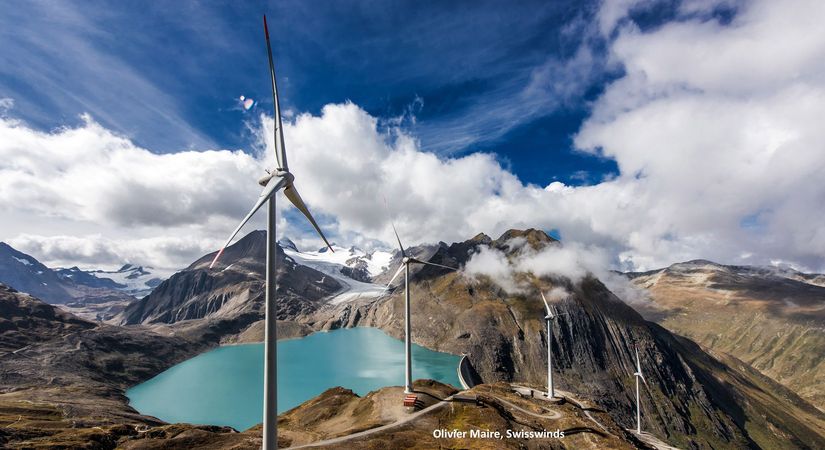Renewable energy production is head of the pack

Specialists of the Energy Politics Group at ETH Zurich were commissioned by SATW to analyse - for the first time ever - the total energy balance of key forms of power production in Switzerland using standardised methodology. Hydro power in particular showed outstanding results.
The study examined natural gas, geothermal energy, nuclear power, photovoltaics, coal, hydro power and wind power and firstly calculated their non-renewable cumulative energy demand required to build and supply a system and for power production. For fossil fuel production processes and nuclear power, this is first and foremost the energy in the relevant fuel (gas, coal, uranium). The second element determined was the energy return on energy investment (EROI), which describes the relationship between the power produced and the (‘grey’) energy invested across a system’s entire life cycle. These key figures were used to assess total energy balance.
Hydro power is outstanding – photovoltaics and wind power perform well
Hydro power’s total energy balance is outstanding. What is impressive is how much it outstrips other forms of power production in terms of its energy return on energy investment. This analysis strengthens the argument that hydro power absolutely should remain a key pillar of Swiss power production. The efficiency of photovoltaics and winde power has significantly increased in recent years. The technological learning curve means that the energy return on energy investment for new renewable energy sources has risen dramatically over the past decade, and is expected to continue rising in the future. Public subsidy programmes play a huge role in the positive development of new renewable energies (and other technologies), including as regards total energy balance.
Reservoirs are the top storage technology
The upgrading of Switzerland’s energy supply system has meant that the proportions occupied by stochastic forms of power production using photovoltaics and wind energy will increase. Storage technology will therefore play an increasingly important role in regulating energy. Pumped hydro storage systems have a clear advantage in this area over power-to-gas-to-power processes and batteries. Despite hydro power’s currently difficult economic situation, from a total energy balance perspective this means that Switzerland should continue to support it as the key pillar of power production for the future.